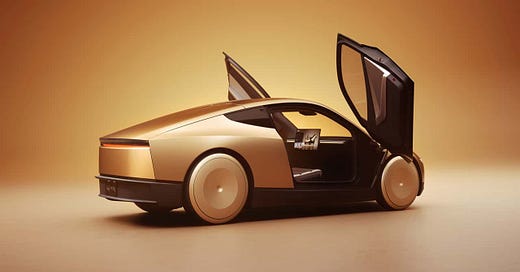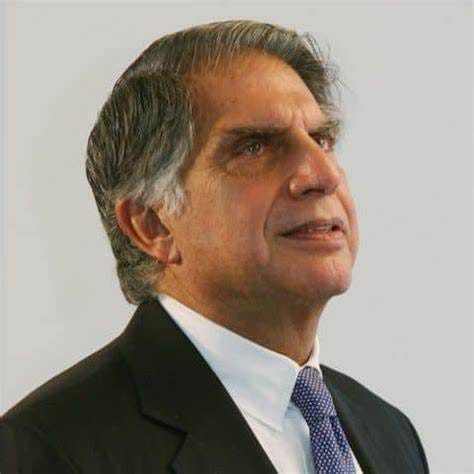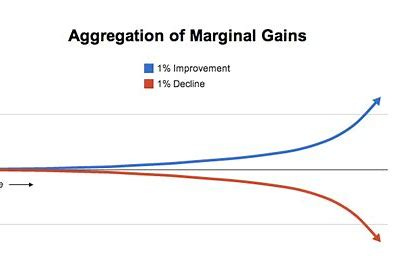The Week That Matters (7-11 Oct, 2024)
"The successful warrior is the average man, with laser-like focus." Bruce Lee
This week the newsletter will argue the following points:
Tesla has lost its mojo. Elon Musk must regain his focus.
The Open AI project will run out of backers soon.
No one said Chinese equities were for the faint hearted.
Tesla: Losing its mojo?
India’s Henry Ford, Ratan Tata, passed away this week. It was a sad day for the author’s Indian friends. Long before the rise of PM Modi, he made India’s presence felt around the world.
In 2008, he bought Jaguar and Land Rover from Ford for $2.3bn and a year later, he tried to mimic Henry Ford’s playbook from the 20th Century by launching an affordable car for the masses in India. The car was called the Nano.
The difference between Ratan Tata and Henry Ford, of course, was Ratan Tata was a businessman while Henry Ford, at his core, was an engineer. Whereas Ford knew about every screw that went into the Model T, Tata was in love with the vision. The Nano was nothing more than a passion project. As it was not Ratan Tata’s singular focus, the Nano failed to live up to expectations.
The Aggregation of Marginal Gains Principle
Henry Ford once said, “the competitor to be feared is one who never bothers about you at all but goes on making his own business better all the time.” Like most great capitalists, most days Ford lived in a state of fear.
Ford believed that in complex engineering, nothing is more important than the aggregation of marginal gains principle, if you wanted to win! A company should strive to find a one percent improvement in everything it does (efficiency, cost, longevity etc.). These little improvements of one percent mean nothing by themselves, but when added together over time, they can make a MASSIVE difference.
Elon Musk used to espouse Henry Ford’s theory on complex engineering. That’s what made him so special in an American context. American car manufacturers by the 1960s had forgotten the lessons of Henry Ford. That was fine for a while as they had a dominant position in the industry. It only became a problem when the Japanese, who had a similar principle to Henry Ford, namely kaizen, started producing cheaper and better cars than the ones produced by Ford and GM.
A good example of how Tesla focused on marginal gains was the way Tesla experimented with the battery. Tesla picked everything apart, which meant it had vehicle range that was 54% longer while being 56% cheaper to produce.
But that’s a few years ago now. The author believes, as with Ratan Tata, Elon Musk’s car company is no longer his singular focus and it’s starting to show. The Cyber Truck was a novelty product for those who could afford to spend $100,000 on an ugly looking vehicle. Its sales have been lackluster, and the bad reviews are now coming in thick and fast.
And the Robo Taxi event was very disappointing this week. The author has worked with many start-ups. Some start-up founders excel at covering up their lack of progress by pointing to new shiny things. That’s how the Robo Taxi event felt. There was a lot of hyperbole and hand waving. There just wasn’t much substance. Even the robot, Optimus, looked like it was being remote-controlled by someone behind a curtain.
Does Elon see the writing on the wall?
Criticizing Elon Musk is like criticizing Mother Theresa these days. People get really angry. But please note the author loves him. When he first learnt about him in the mid 2000s, he felt he was a breath of fresh air. He had audacious plans and didn’t want to just get rich helping poor people spend money they didn’t have (most fintech?).
For the record, the author doesn’t have an issue with his politics. It’s up to him what he believes (the author is a bit anti-woke himself). Despite all this, the author wonders whether Musk has bitten off way too much and deep down, he is starting to realize it.
In 2012, in a famous interview on a news channel, he laughed when the news person brought up Chinese electric vehicles as competition. To be fair, why would he worry back then? The big risk was a response from the incumbents at that stage, namely Ford, GM and Toyota. EV start-ups, Rivian and Lucid, were also a concern. The Chinese had just started handing out financial subsidies to EV companies. Their industry was in its infancy.
But now the Chinese have caught up and their technology and know-how are compounding. In some ways, they lived Henry Ford’s ideal. The top companies in China have focused on making their products better and better (competition does that). As noted before, those small improvements mean nothing by themselves, but when added together over time, they can make a MASSIVE difference.
It is interesting that Baidu, for example, already has a fleet of 500 robotaxis deployed in Wuhan. They’re not perfect. But like Google’s Waymo, they are in market unlike Tesla’s product. Check out this taxi in Beijing (impressive, right?):
Keep reading with a 7-day free trial
Subscribe to Mateen's Newsletter - Discuss The Tape to keep reading this post and get 7 days of free access to the full post archives.






